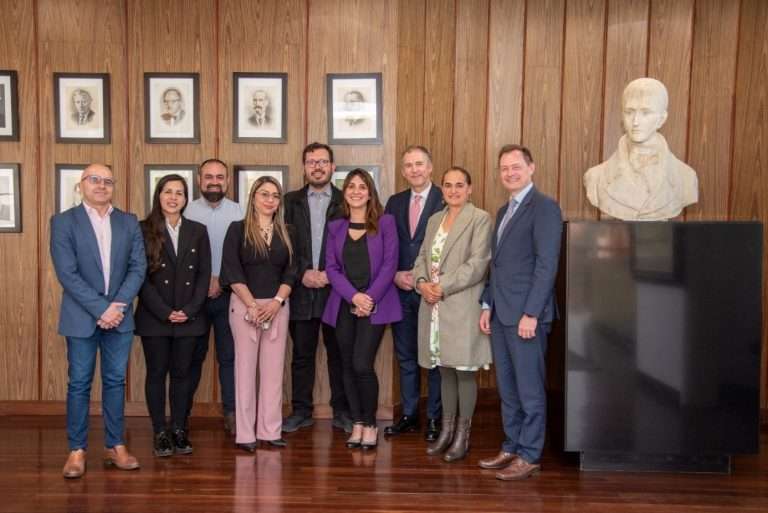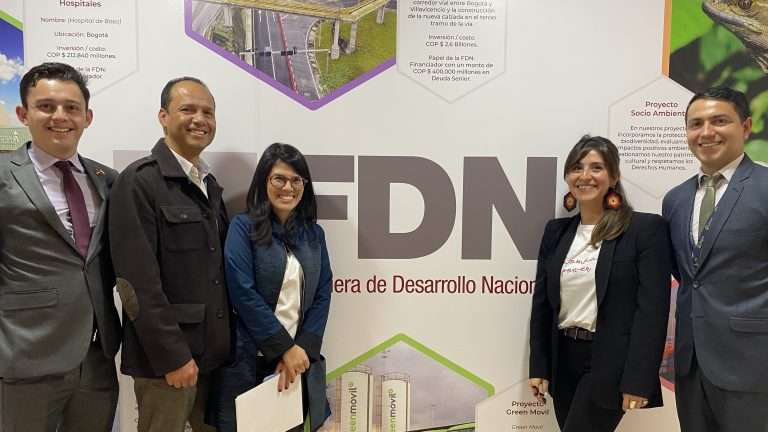Symposium on Railway Transport in Colombia: Lessons learned from Germany’s Railway Experience
On February 13, we had the pleasure of holding the first Symposium on Railway Transport in Colombia under the motto “Lessons Learned from the German Railway Experience for Colombia” in the country’s capital Bogota.
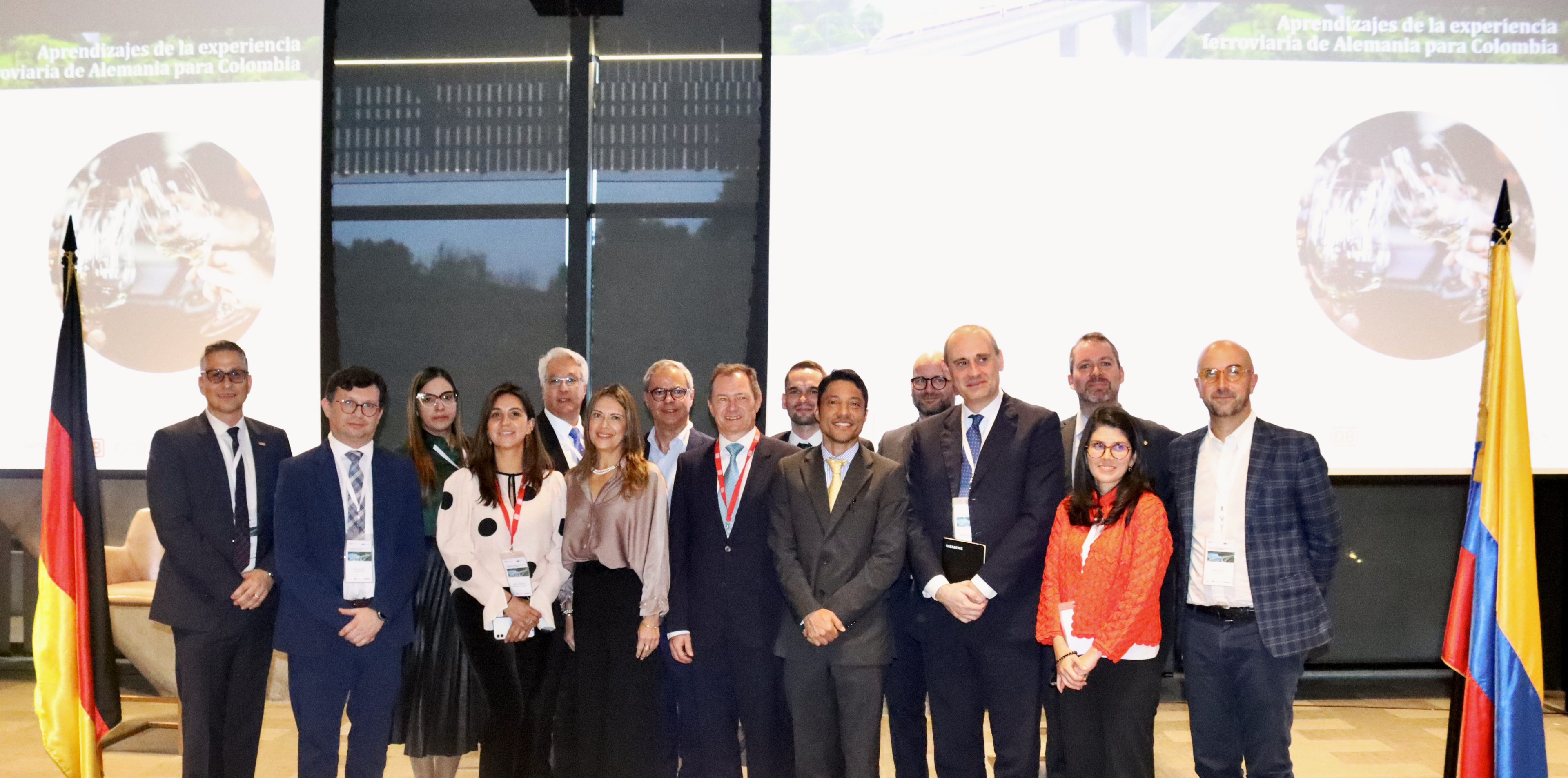
Contact
The event was hosted by the German Embassy Colombia and the German-Colombian Chamber of Industry and Commerce (AHK) in cooperation of the Latin America branch office of our subsidiary DB Engineering & Consulting and Siemens Mobility. It aimed at fostering collaboration and knowledge sharing between Germany and Colombia in the field of railway transport.
After warm words of welcome by the hosting institutions, the symposium kicked off with a speech by Ferney Camacho, Infrastructure Director of the Ministry of Transportation of Colombia. He delivered a compelling address on the reactivation of railroads in Colombia, shedding light on the latest developments and the major needs identified within this sector. Mr. Camacho also emphasized the Colombian government’s commitment to revitalizing the railway infrastructure as a way to enhance connectivity, foster economic growth, and promote environmental sustainability. He expressed optimism about the future of railway transport in Colombia, envisioning a modern, efficient, and sustainable railway system that leverages global expertise to meet its unique challenges and opportunities, not only at a local level but as a country with a strategic geographical location for the transit of goods and passengers throughout the continent.
His contribution was followed by Simon Herchen, Minister Counselor and Deputy Head of the Embassy of Germany, who explained the significant role of railway infrastructure in the socio-economic development in Germany. Subsequent panels on the transfer of German experience and knowledge to the Colombian railroads and Germany’s historical legacy to Colombia through Metro de Medellin, led to another focal point of the symposium: the relevance of international partnerships, particularly with German companies, in transferring knowledge, technology, and best practices to Colombia. By drawing lessons from Germany’s advanced railway system, Colombia can embark on a path toward creating a more connected and interoperable transportation network which benefits from high-standard regulations that guarantee efficiency and sustainability.
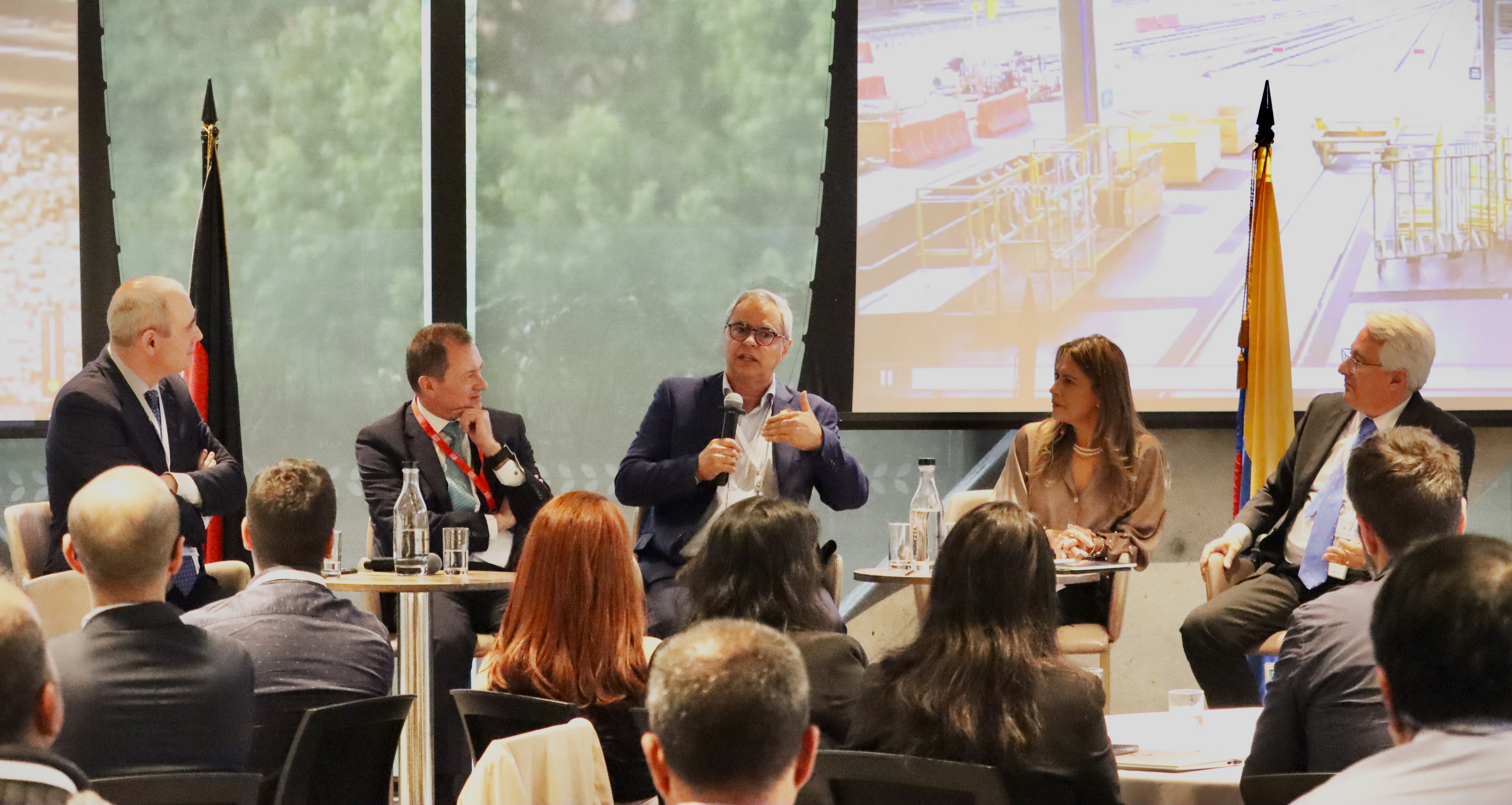
This collaborative approach aims not only to revitalize the railway sector but also to contribute to the country’s institutional strengthening and support broader development goals, enhancing mobility, reducing carbon emissions and laying the foundation for continued economic growth.
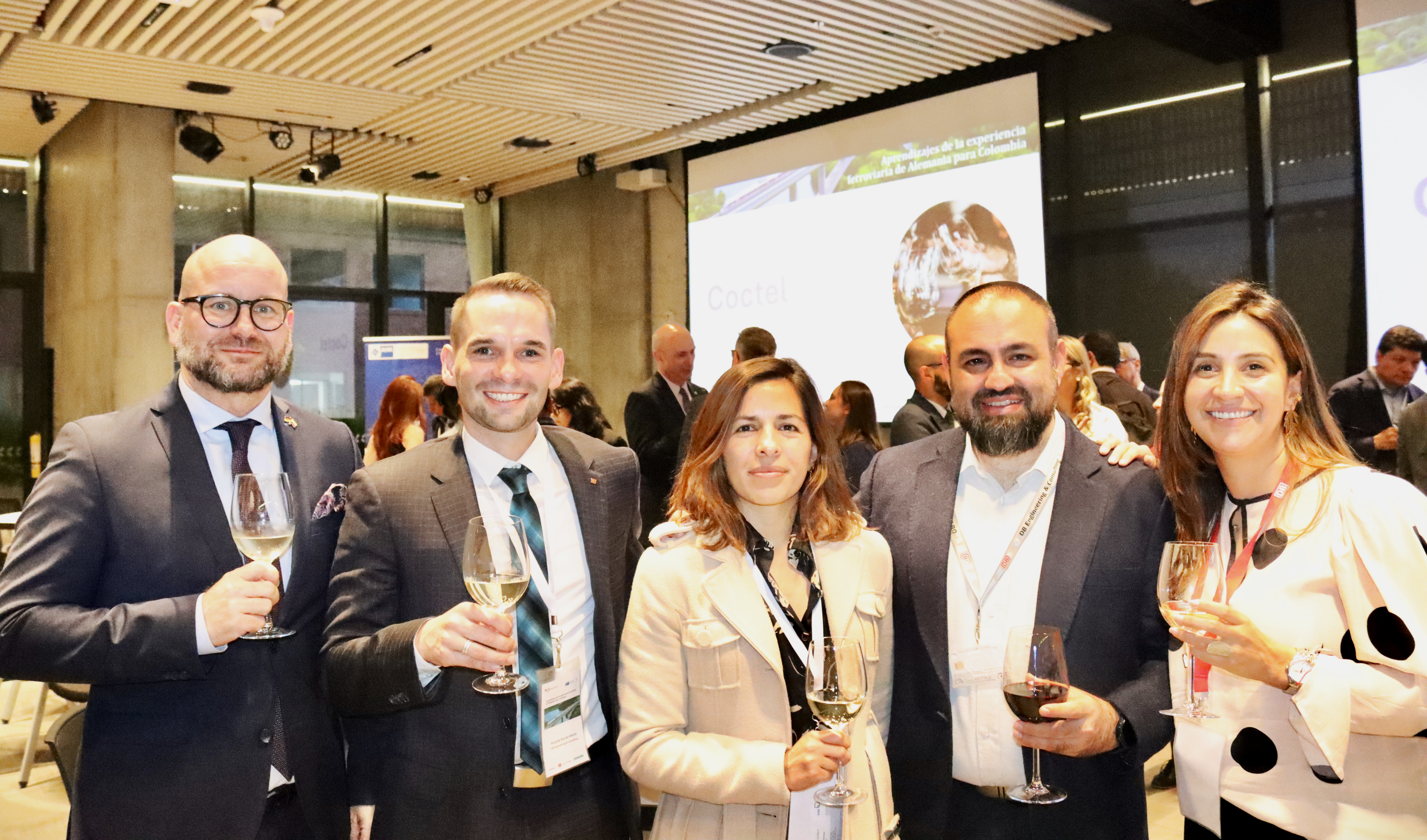 Part of the DB team at the symposium
Part of the DB team at the symposiumPart of the DB team at the symposium 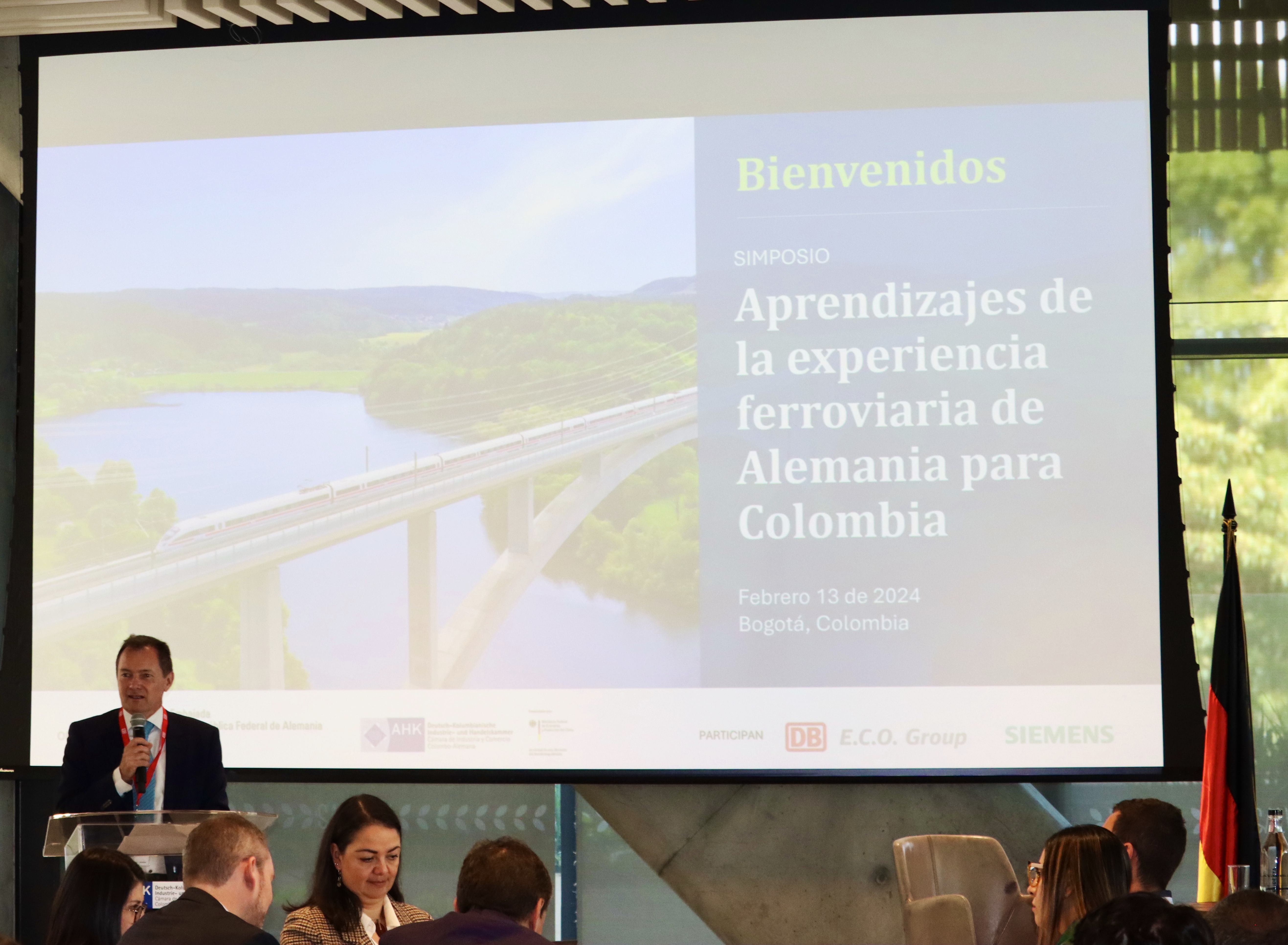 Introduction by Carsten Puls, Director of DB Engineering & Consulting Latin America
Introduction by Carsten Puls, Director of DB Engineering & Consulting Latin AmericaIntroduction by Carsten Puls, Director of DB Engineering & Consulting Latin America 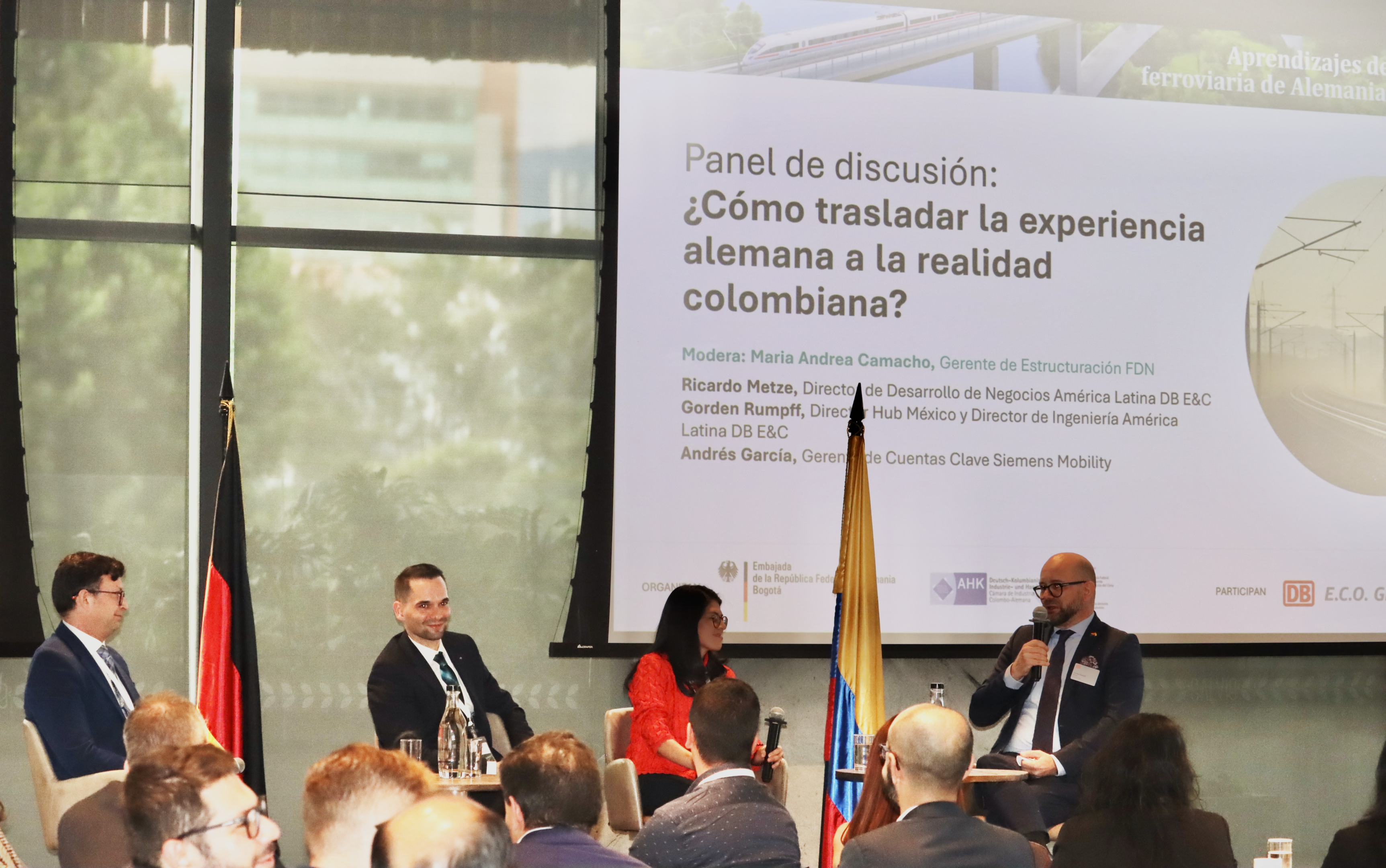 Panel talk with Ricardo Metze and Gorden Rumpff
Panel talk with Ricardo Metze and Gorden RumpffPanel talk with Ricardo Metze and Gorden Rumpff 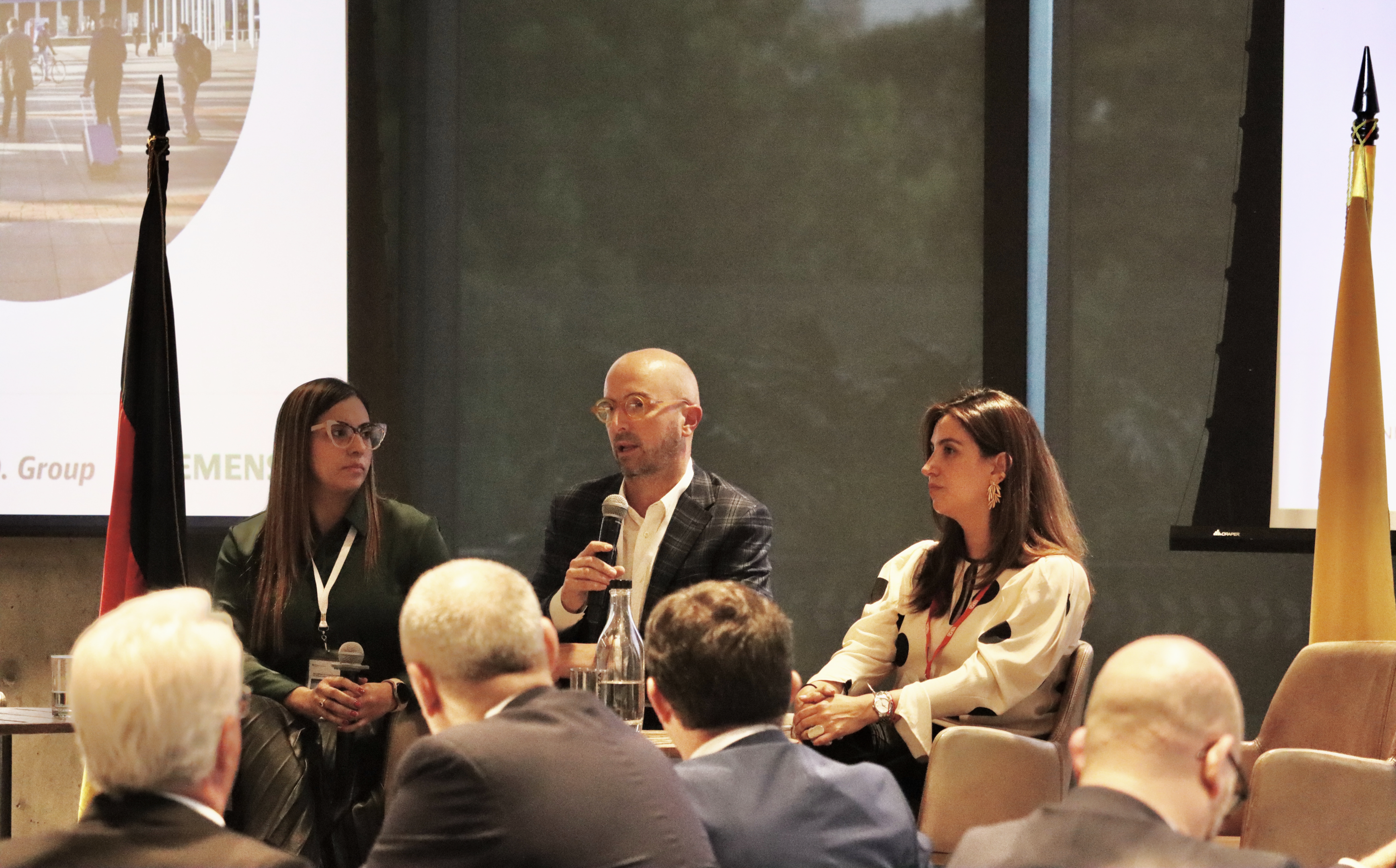 Concluding words by Maria Camila Celis
Concluding words by Maria Camila CelisConcluding words by Maria Camila Celis
Carsten Puls, Regional Director of DB E&C Latin America, outlines the use of German engineering expertise in Colombia’s railway projects:
“German engineering is looking to produce high quality by combining operation and knowledge, especially from DB. Railway projects must be planned from their purpose. The needs of the end user and the purpose must be taken into account, and this defines the design. Our experience in operations facilitates the planning process and helps to consider all the factors necessary to develop efficient, forward-looking, and truly sustainable projects. We believe this is very important for Colombia right now.”
The event agenda was also enriched with key contributions from experts representing the European Union, the National Infrastructure Agency (ANI) and the National Development Fund (FDN). They emphasized important topics such as financing and the integral structuring of railway projects.
As another step to further intertwine the German-Colombian railway industry and promote knowledge transfer, the Colombian participants were invited to form a delegation for this year’s InnoTrans, the leading international trade fair for transport technology, which takes place in Berlin. All participants agreed on a key point: a robust, modern, digital and interoperable railway system, together with other modes of transport, will help the country to fully obtain its great economic and social potential in a sustainable and environmentally friendly way.

